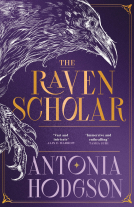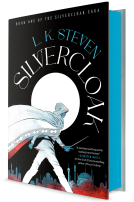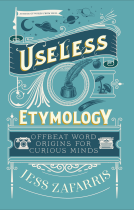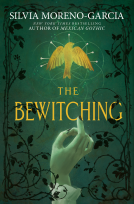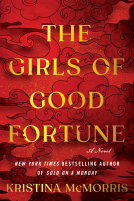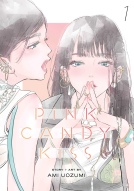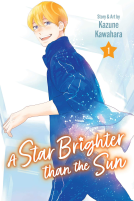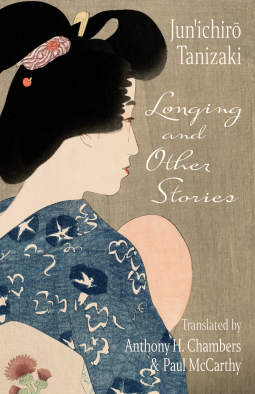
Longing and Other Stories
by Jun'ichirō. Tanizaki
This title was previously available on NetGalley and is now archived.
Send NetGalley books directly to your Kindle or Kindle app
1
To read on a Kindle or Kindle app, please add kindle@netgalley.com as an approved email address to receive files in your Amazon account. Click here for step-by-step instructions.
2
Also find your Kindle email address within your Amazon account, and enter it here.
Pub Date Jan 04 2022 | Archive Date Apr 13 2022
Talking about this book? Use #LongingandOtherStories #NetGalley. More hashtag tips!
Description
“Longing” recounts the fantastic journey of a precocious young boy through an eerie nighttime landscape. Replete with striking natural images and uncanny human encounters, it ends with a striking revelation. “Sorrows of a Heretic” follows a university student and aspiring novelist who lives in degrading poverty in a Tokyo tenement. Ambitious and tormented, the young man rebels against his family against a backdrop of sickness and death. “The Story of an Unhappy Mother” describes a vivacious but self-centered woman’s drastic transformation after a freak accident involving her son and daughter-in-law. Written in different genres, the three stories are united by a focus on mothers and sons and a concern for Japan’s traditional culture in the face of Westernization. The longtime Tanizaki translators Anthony H. Chambers and Paul McCarthy masterfully bring these important works to an Anglophone audience.
Advance Praise
"These three early works by Jun’ichirō Tanizaki explore family bonds—the mother-son relationship in particular—using different angles and styles: dreamy and lyrical, painfully realistic, tragically fraught. In stories rendered with elegant precision by the veterans Anthony H. Chambers and Paul McCarthy, Tanizaki masterfully probes the complexities of the human heart."
—Juliet Winters Carpenter, translator of Minae Mizumura’s An I-Novel
"Among the most original and insightful novelists of twentieth-century world literature, Tanizaki creates richly idiosyncratic characters embodying the paradoxes of modern life. As deftly translated by veteran Tanizaki specialists Chambers and McCarthy, his short fiction will fascinate and delight readers."
—Keiichiro Hirano, award-winning author of A Man
"Chambers and McCarthy capture well distinctly different voices in these early Tanizaki stories exploring three modes of storytelling. Lyrical dream-memory, naturalistic fictionalized self-revelation, and ironic commentary on conventional social morality presage the author’s later writing. The Afterword draws on the translators’ deep knowledge of Tanizaki’s work to enhance our pleasure and understanding."
—Phyllis Lyons, translator of In Black and White: A Novel
Available Editions
| EDITION | Other Format |
| ISBN | 9780231202152 |
| PRICE | $20.00 (USD) |
Featured Reviews
Longing and Other Stories collects three stories by the Japanese writer Jun'ichirō Tanizaki (1886-1965). I've been meaning to read Tanizaki's most famous novel, The Makioka Sisters, for some time, but Longing and Other Stories is much shorter and seemed more accessible, so I began with it instead. The three stories have themes in common—all deal with family relationships, particularly between mother and son, and all touch on the tension between Japanese and Western cultures. Yet each story is written in a distinctive style. "Longing" is a surreal recollection of a childhood dream, "Sorrows of a Heretic" a cynical, realist depiction of a dysfunctional, downwardly-mobile family, and "The Story of an Unhappy Mother" a haunting, dramatic portrait of the unraveling of the relationship between a mother and son. "The Story of an Unhappy Mother," the last story, was my favorite of the three, but I enjoyed all of them. I also appreciated the afterword by the translators, which added cultural and critical context to the stories. I definitely want to read more of Tanizaki's work in the future!
 Sookie S, Reviewer
Sookie S, Reviewer
In <i>Longing</i> the narrator reminisces of their earlier life, a seemingly simpler times but deeply influential on the young man as he narrates. Longing is for home, for warmth, for belonging and he wants it all from one person. Longing is a simple story of a young boy's longing and its also a study in the encompassing feeling of <i>longing</i> in itself; to see reflection of lost affection in a stranger's face, or in an animate object like moon and gentleness of moon beams, it is both a story and en emotional outage. <i>Longing</i> is a dream, and the object of the dream is long gone.
There is much to dislike about <i>Sorrows of a heretic</i>, with the unlikable protagonist, the heretic, and the life he pursues. There is less sorrow and much selfishness, there is more self-awareness and less regret on the condescension of his behavior; it is perhaps somewhere in the middle, his character evolves as the story ends. Is being self aware of the boundaries and of lack of morality of ones own life choices enough for a purposeful life? the underlying question meditates by exposing his behavior in various situation as he cheats and parties his way out of situations without care for anyone but himself. But the author subtly nudges - is he caring for himself? is that selfish part of him in action? Realistic in its approach, the dysfunctional family including the protagonist appears to be out of touch with reality or seem to be so.
<i>The story of an unhappy mother</i> is an interesting contrast to the previous story. A family that is superficially perfect struggles with the matriarch's bouts of melancholy and the odds she is with, with her eldest son. A secret, a new daughter-in-law, and a death, brings the story to its head and leaves the reader, well, underwhelmed.
The three stories have families as their central themes especially moral obligations towards mother, father, parents and filial duties. The author explores the change in relationships between parents and their children as they grown up and forge their own new relationships which can sometime clash with the parental ones. This is my first time reading Tanizaki-san and this was a great experience.
<i>Thank you to Netgalley and Columbia University Press for providing me with a free copy of this e-book in exchange for an honest review. </i>
Longing and Other Stories is my first time reading Tanizaki, and on the basis of this short story collection, I would definitely like to read some of his novels in the future. All three stories had something interesting to offer, not least in their varied styles, taking us from romantic, fantasy-tinged lyricism to gritty realism and then to a kind of morality tale that assessed changing family values due to the advent of Westernisation. Although I enjoyed all three stories, I think the first, 'Longing', was my favourite, as I loved its beautiful descriptive language and the wonderful atmosphere Tanizaki created. If you are a fan of early 20th century Japanese literature, I can highly recommend giving these stories a read. This book gets 5 stars from me.
I had very high hopes for Longing And Other Stories as I've wanted to delve into Jun'ichirō Tanizaki for quite some time now, and I was not disappointed. Each story brought its own kind of heartbreak and pain, a longing for something just out of reach. I found the translations to be faultless and evocative of what the intended message of the original brought through. While I did find myself struggling to connect with the protagonist in Sorrows Of A Heretic, the overarching themes of family and loss made for a heartwrenching read. I found the translator's afterword to be incredibly helpful, allowing the reader to gain context of the works. Overall, I'd seek out other works by Jun'ichirō Tanizaki without a moment of hesitation.
This was my first book by the Junichiro Tanizaki, one of the great Japanese authors of the 20th century. I thought a collection of three short stories could be a good place to start, especially given they explore themes Tanizaki would go on to develop in his future work. And it was.
First story: 2,5 stars
Second: 4 stars
Third: 4 stars
Average: 3,5 rounded up to 4.
The first story is much more dreamlike than the other two, a child wandering around in a strange landscape looking for his mother - I did not connect at all and was ready to give up.
The second story is very realistic, about a pretty horrible student mistreating his family and fellow students. Very well build-up.
The third story is about an unhappy mother who changes after her eldest son marries. Also a very intriguing read.
As often with classical authors, the afterword by the translator is real added value. It places the stories in the historical context (e.g. Meiji period) and highlights the cultural references (e.g. honouring Confucian principles) hidden in the text. I am sure that the better one is versed in Japanese history and culture the more they will enjoy this collection. But even for a complete layman as myself it was interesting.
Longing and Other Stories features three short stories by Jun'ichirō Tanizaki, focusing on the relationships between mother and son.
In the first story, "Longing“, a child is lost looking for his mother in the wilderness. This story was my favorite. It used very descriptive language and felt very mystical.
The second story, "Sorrows of a Heretic,” surrounds a university student living in poverty with his dysfunctional family. This story was my least favorite as I struggled to connect with the protagonist; he was very unlikeable!
The third story, "The Story of an Unhappy Mother,” describes a disintegrating relationship between a mother and son. I loved how the plot unfolded to reveal secrets as to the real reason for the mother’s melancholy.
Overall I enjoyed all three stories and found them to be a very compelling and emotional read. I recommend reading the translator's afterword as it provides deeper insights into all three stories.
Many thanks to Netgalley and Columbia University Press for providing an ARC in exchange for my honest opinion.
 Meg S, Reviewer
Meg S, Reviewer
Thank you Netgalley for the e - ARC in exchange for an honest review!
This is one of the most valuable pieces of translated fiction available to us and I'm so glad that I have had the chance to read it! Jun'ichirō Tanizaki puts mother-son relationships under a microscope over the span of three poignant short stories. I am awed by how connected I felt to the characters and how vividly the themes of insecurity and self-criticism were touched upon in this book. Absolutely loved all three of them, but The Story Of An Unhappy Mother is my personal favorite!
[my rating: 4.5/5]
 Galina Z, Reviewer
Galina Z, Reviewer
It was a real pleasure to me to read these amazing stories that deal with mother-son relationships. And how this kind of relationship can be different, so are the stories. But they will not leave anybody indifferent. Plus, it was great to immerse yourself in the Japanese culture and philosophy. The translator's afterword is a very important thing that can help everyone to get all the author's ideas and , maybe, reread the stories to acquire the different level of perception.
Many thanks to Netgalley and Columbia University Press for a digital copy of this book in exchange for an honest review.
I had been meaning to read something by this author for a while so when I had the chance to review this book, I leaped at the opportunity. Needless to say, I was not disappointed.
Despite being written in different styles, all three stories drew me in. They were all beautifully written, excellently translated, and effectively portrayed emotions that can still be appreciated even now, a hundred years (give or take) after their original publications. I really appreciate writing that can sweep you along regardless of what happens in the story and this was definitely one of those cases. In each story, I was never entirely sure where the plot was going, but I was content to let myself enjoy the language and the emotions that it carried.
I will say, though, that these stories are not for everyone. The protagonist in the second story "Sorrows of a Heretic" for example, is extremely unlikeable. I still enjoyed the story personally because, despite his flaws, the young man still struck me as someone with potential. If he could have stopped being so self-centered he could have been a good person. This was enough to keep me engaged. I kept reading in the hope of seeing some redemption (I even like to think there was a glimmer of that towards the end), but I can also see where this character would quickly get tiresome.
It also bears mentioning that the third story, "The Story of an Unhappy Mother," includes suicide. I would advise caution for anyone triggered by that.
Ultimately, I gave this book a 4.5 out of 5 stars. It's a short read that makes a big impact, but I think some knowledge of Tanizaki and the time he lived in would have increased my enjoyment.
That's not to say I didn't enjoy the stories, I definitely did. However, I was undeniably viewing them from my 21st-century lens and while that has its own appeal, there were still times that I felt I was missing something. The afterword confirmed this by offering new details which would never have even occurred to me. I'd like to learn more on the subject and return for a second read.
My thanks to NetGalley and Columbia University Press for providing me with a free copy in exchange for an honest review.
Three interesting stories of mother and son relations, all based on the live of the author, that show the strain a modernising society put on confucian morals
I have portrayed honestly and unreservedly, to the extent possible and justifiable, matters that struck my heart as fact s at the time. In this sense, this is my only confessional work. - Jun'ichirō Tanizaki about Sorrows of a Heretic, the longest story included in Longing and Other Stories
The bundle contains three distinct stories, with titular Longing kicking off the collection.
That voice - though it was less a voice than a profound silence - created a melancholy music that made the quietness of the night still more mysterious….
A boy lost in the dark pine woods after relocating from Tokyo ends up in an almost dreamlike voyage through the rural landscape. In terms of alienation it reminded me of Sylvia Plath her novella Mary Ventura and the Ninth Kingdom. The narrator in no way feels childlike, a hint to quite an emotive tale in terms of environmental depiction. Quite uncanny.
Sorrows of a heretic
You were born with a defective spirit
An unlikeable main character who has lucid dreams and speaks unconsciously out loud, with a dying sister at home. The discussion and backstory of a gramophone at the start of the novel was rather excessive in my view. Then we have some lending gone wrong, and even more character flaws in the narrator, however his fellow students are not much better, only wanting to visit a grieving family because they think the sister of the deceased hot.
Egotistical, lazy, indulgent, unreliable - the main character is drawn by Tanizaki in an unflattering manner, beaten down by circumstances with no way out, but also at his core no true morality.
The ending is very sudden; apparently autobiographical, and a very unflinching character study
The story of an unhappy mother
Younger brother narrating a family’s tragedy, befallen to his mother and eldest brother.
Again a spoiled child character in the spotlight, this time a mother instead of a son.
Confucian morals maxed out, coming into the spotlight due to a freak boat incident.
I am sure Mother will go on living in my heart forever, uttered at the end of the story feels almost like a threat.
An interesting collection of uncanny, uncomfortable tales from a great Japanese writer.
 Reviewer 762493
Reviewer 762493
I wasn't expecting to love this book, but I was deeply drawn to it.
When I was an undergraduate, our modern Japanese literature class had something horrible in store for everyone. There was Ōe Kenzaburō's "A Personal Matter", dealing with a man who was trying hard to kill his newborn son without getting blood on his hands, while drinking his life away; there was Yasunari Kawabata's "Sleeping Beauties", about a brothel where old, impotent men go to spend the night by the side of drugged women; there were more.
One by one, each of the students in that class has a breakdown. My breaking point was reached when reading Tanizaki's "The Children", which dealt with the emergence of sexuality and sexual sadism. It wasn't graphic, if I recall correctly. It was probably a good story. But it was a tough semester, and it was the straw that broke the proverbial camel's back.
It's funny, because I've gone back to most of the authors on that list and it's become quite clear that Ōe Kenzaburō is the one I'm happiest without.
Tanizaki, though. I never dared read him again, until now.
The volume opens with <b>"Longing"</b>, the story of a young boy from an impoverished, formerly rich family. It's night, and the boy walks down a long road, counting telegraph poles. But even as he does so, it becomes apparent that there's a disconnect between a child's mind and the narrator's voice; the story is told by an adult remembering that night with delicacy, a fine eye for detail and a poet's spirit.
There's something supernatural and slightly terrible about the child walking close to the seaside on a seemingly timeless journey, meeting two women: one, an unpleasant crone who shuns him, the other a beautiful young woman playing a samisen. It's an enchanting story, delightful, a bit terrifying, and very beautiful.
The second story in the volume is <b>"Sorrows of a Heretic"</b>, and the tone is shockingly different. A young man, a student from a poor family, supported by richer relatives to remain in university, leads a dissolute life. He borrows money from friends to spend on geishas and other pleasures, he skips classes, drinks to escape his anxieties (becoming such an alcoholic that at one point he drinks the cooking sake).
He's a rascal, thoughtless, careless, but as we get to know him, he becomes almost relatable in his fears.
I thought I was reminded of Dostoevsky because I had him on my mind lately, but it turns out - I'm not the only one seeing the resemblance.
The third and final story of the volume is <b>"The Story of an Unhappy Mother"</b>. Another change of tone; and I'm more ambivalent towards this particular story.
The narrator is a younger brother, talking about his mother: a woman who is young at heart, full of life, yet terrified of death, and very proud of the regard her children show her. When the older brother wishes to marry, he has to 'trick' her into thinking she chose the bride. Everything seems to proceed happily until a seemingly harmless accident happens. The moral implications of that accident, however, lead to the long, slow mental torture and eventual death of both mother and older son.
The younger brother telling the story seems to be constantly apologizing on behalf of those involved in it. The blame cannot lie with the mother; it cannot lie with the older son. It's almost a tragedy in the ancient sense of the word, of a powerful collision between the forces of fate. It could not have been foreseen, but the younger son feels it might have been stopped if the younger children had put their foot down and been more sensible at just the right time.
<b>What really makes me round up the rating to 5 stars</b> is the afterword. First of all, I love that it's an afterword, as it discusses plot points and more. Tanizaki's stories really stand on their own and I loved them, and the afterword enhances that by throwing a new perspective over them: are they in any way based on Tanizaki's life? What are their influences?
It draws attention to traditional elements, to the tension between older generations and newer generations in early 20th century Japan (that might not be evident to a Western reader), to Western ideas that permeated Tanizaki's work. It's the best type of afterword: non-intrusive, broadening interpretations rather than narrowing them down, informing without overwhelming.
And the translations are simply lovely. My Japanese is, alas, not up to the task of even trying to read these stories in the original, but their rendition in English was beautiful and enchanting.
<i>Many thanks to Columbia University Press and NetGalley for offering an ARC in exchange for an honest review.</i>
i’m surprised by this collection of short stories! i loved the translations – the writing was very good, lyrical without being purple-prose. the emotions and the message of each story were conveyed in a great way – i particularly enjoyed how longing, the title story, had this dreamlike quality to it.
the second story, sorrows of a heretic, was the one that stood out most to me – in a weird way, since it might be the one i liked the least. the main character is such an unlikeable protagonist, but he’s so well written – so selfish and seemingly out-of-touch with reality. it’s definitely an interesting story.
the third one, the story of an unhappy mother is somewhat of a borderline horror story, with such an unsatisfying ending. i liked it until that ending left me wanting more. the build-up was so interesting, the question of what’s the relationship this mother has with each of her kids and how this seemingly perfect family was actually rotten to the core.
overall, an interesting read. i’ll definitely check out the author’s other works.
thank you to netgalley for providing me with an ARC in exchange for an honest review!
 Paul V, Reviewer
Paul V, Reviewer
Pretty good stories here. I haven't read many Japanese stories, and I enjoyed these. I can see why the author is so well respected. I'm inspired to check out some other Japanese authors now. Recommended.
Thanks very much for the free ARC for review!!
 Meike S, Media/Journalist
Meike S, Media/Journalist
This collection of three lenghty short stories focuses on the relationship between sons and their mothers: The first introduces us to a child longing for his mother, the second portrays a selfish teenager with a terminally ill sister and a desperate mother, and the third is the story of a newlywed, thus adding the role of mother-in-law to his mother's repertoire. I really enjoyed the subtle way in which the themes are explored and Tanizaki's elegant, slow-moving language that gives weight to decisive details.
The afterword explains how the stories correspond with the time they were written and set in, how Confucian thinking informs the narrators, and how some events relate to the author's own life - I won't spoil anything here, because going in blind will definitely alter the reading experience and allow you to shift perceptions after gathering more information.
A wonderful collection - I need to read more Tanizaki.
A wonderful new translation that is readable and yet maintains the mystical tone of Tanizaki's writing.
"When I go out into the world, will I have to endure the same suffering and distress as my parents?"
Three short stories about mothers and sons were written by Junichiro Tanizaki, a Japanese author of the 20th century.
Longing translated by Paul McCarthy
My favorite story is about a son looking for his lost mother on road in the moonlight. So a wonderful and touching story. It was like a poem, enjoyable read, very beautifully written and translated.
Sorrows of a Heretic translated by Anthony H. Chambers
hōzaburō is a university student living with his family. This was like his biography.
The Story of an Unhappy Mother is translated by Paul McCarthy
This was a story of an unhappy mother, who changed into a different person after her elder son’s marriage. The story is told by the younger son. He believed his brother killed his mother, and that it was his mother who killed his brother.
Many thank Columbia University Press and NetGalley for an ARC, I have given my honest review.
Pub Date 04 Jan 2022
 Reviewer 852036
Reviewer 852036
I went into this blind unsure of what to expect, but was greatly surprised. Three short stories about the relationships between mothers and sons, all gripping and beautiful. The writing is like poetry. Beautiful descriptive and vivid.
This is a unique read. Nothing I’ve ever come across before. It’s subtly moving and sad.
People who enjoy “The Little Prince” by Antoine de Saint-Exupéry as children would like this collection.
Thank you to Netgally and Columbia University Press for this arc in exchange for my honest review.
 sara a, Reviewer
sara a, Reviewer
I majored in Japanese Literature in college so I was eager to read this translation of Tanizaki's work. I have read The Makioka Sisters and The Key and a few other translations many years ago. Reading these three stories rekindled my admiration for Tanizaki whose characters are presented in such great detail that we can feel them living amongst us. These are gritty stories and I enjoyed the settings and time period. The exploration of character is so intricate and descriptive that they could almost work as a textbook for an author trying to work on character depiction.
This work is also a good juxtaposition between the modern women writers of Japan that are currently in the limelight. I'd urge anyone interested in Japanese literature to give Tanizaki a try.
Longing and other stories
Author jun'ichirō Tanizaki
Thank you, NetGalley for this complimentary book in exchange for an honest review.
I had always wanted to read Tanizaki's
"The Makioka Sisters" but Longing and other stories seemed to be much shorter so picked up this one instead.
It's a dreamlike collection of three short stories which concentrates on the relationship between the mother and the son.
Each story has a heartbreak though
I loved the wonderfully descriptive vocabulary adopted here.
It was a real pleasure to engross oneself in Japanese literature.
I Will surely read his other works also.
⭐⭐⭐⭐/5
 Reviewer 494590
Reviewer 494590
Three stories about mother and son relationships by an author I've long been meaning to try. They are said to be based on the authors own life, but they clearly aren't strictly autobiographical because the details from each story don't match up.
The first story, (my favourite), is about a young boy longing for his mother. The writing in this one was beautiful and it has an achingly sad, dreamlike quality to it. 4*
In the next one, we have a student who is a thoroughly disposable character at odds with his family, who he holds in disdain. This was the longest, which was unfortunate because it was the one I liked the least. I just couldn't relate at all to the character.
The third one was interesting, this time it was the mother who is rather self centred, and problems arise in the family when the eldest son brings home a bride.
Overall, I did enjoy them, though it took me some time to get to the last story after reading that second one. I will keep an eye out for more of his novels, mainly on the strength of the first one.
*Many thanks to Netgalley and the publishers for a review copy in exchange for an honest opinion*
 Reviewer 804737
Reviewer 804737
I would like ro thank Netgalley and the publishers for giving me this book in exchange for an honest review
This is arguably my first foray into Japanese literature that isn't a manga and i really liked it. I tend to not like short stories in general but i liked this one very much. The author's writing feels like poetry and the environments he creates are very vivid and dreamlike. I would love to see an adaptation of one of these stories in film as i feel it would work amazingly well. I would like to also give praise to the translators as this was originally written in Japanese. I understand it can be quite hard to translate books or songs into different languages as sometimes it could result in the meaning of the stories losing its importance due to the translations but i think the translators did a great job retaining not only the author's poetic style but also providing information on the author's life and the times he grew up in which enabled me to appreciate the some of the stories a bit more. My favourite was Longing and my least favourite was confessions of a heretic
 S T, Reviewer
S T, Reviewer
"Longing and Other Stories" written by Jun'ichiro Tanizaki and translated by Anthony H. Chambers & Paul McCarthy is a collection of three stories that offer a detailed view into Tokyo family life in the early 1900's. Some aspects of these stories are certainly universal and thus easy to grasp. The inquisitive reader will become curious about the common details in each story and wonder about how autobiographical these works are. Fortunately, the translators address this and other points in an informative afterword.
I have actually read the first story "Longing" a long time ago in the original Japanese. This collection gave me my first chance to read it in English. The translators did a good job of retaining the feeling of the original text. This story has strongly echoed in my mind for decades.
The second and third stories describe family life in Tokyo between 1910 and 1920 in such detail that really make the pieces come alive. Not all actions and morals by all characters are comfortable, which really adds to the reality.
All three stories refer to specific neighborhoods in Tokyo. It was fun to imagine how much these areas must have changed in the past hundred years.
This is a must-read for people interested in Japanese culture and literature.
I thank the translators and publisher for kindly providing an electronic review copy of this book.
Having read other works by Junichiro Tanizaki, I was happy to have an opportunity to read this collection of three short stories that was pulled from his early work. Loosely connected by a focus on the mother / son relationship each of these stories showcase Tanizaki's gift of writing about family dynamics. The highlight for me was the first story entitled "Longing", as the slow pace invoked a contemplative and almost meditative feeling. Anthony H. Chambers and Paul McCarthy give us a superb translation.
Thank you to NetGalley and Columbia University Press for the opportunity to provide an honest review in exchange for an opportunity to read the advanced review copy of this book.
 Librarian 249029
Librarian 249029
This version of Longing and Other Stories was very kind to readers like me who haven't taken a lit class in years. It flowed very well and was easy to read even when the characters were being difficult people. My thanks to the publisher and Netgalley.
3.5. There are three longish short stories compiled in the collection, “Longing” (1918), “Sorrows of a Heretic” (1916-17) and “The Story of an Unhappy Mother” (1921). All three stories focus on family, particularly that of mothers and sons. The more I read the more I think of Japanese literature as being the brother/sister of Russian literature. There’s something about the dejected, disillusioned youths in both that remind me of one another. The protagonist of the second story here is a university student who fails to go to classes and instead freeloads off his friends and disobeys and disappoints his parents; there’s something of Raskolnikov in him. The first story on the other hand is Kafkaesque, a young boy walking through a strange nightmarish landscape at night, looking for his mother. The ending of this story failed completely for me and ruined what was otherwise going to be a strong and unnerving piece. The last story took some time for it to find momentum but ultimately was compelling enough. The second story was the strongest for me and earnt itself a solid 4 stars and the collection as a whole would have followed suit, had the ending of the first story not been so damaging.
As far as the prose goes, Tanizaki reminded me of the clear and beautiful prose found in other Japanese writers I have read and admired: Mishima, Kawabata, etc. Japanese prose has that distinctive ‘telling’ type of writing which comes across as very technical and economical, because when done poorly, would ignore every writing course’s mantra: Show Don’t Tell. The telling sort of prose has made itself into contemporary Japanese literature and is the sort of prose that Murakami has made for himself as a style. I’ve never found Murakami’s style particularly original in that respect, only his ideas. That being said, it’s clear that Tanizaki is a skilled writer and I’m now doubly eager to read some of his novels, the household names such as <i>The Makioka Sisters</i> and <i>Some Prefer Nettles</i>. This collection was a brief but strong starting point for his body of work and anyone familiar with Tanizaki would equally relish these stories of his.
Goodreads Review: https://www.goodreads.com/review/show/4340470528
having heard so much about Tanizaki from bookstagram, I was skeptical about being disappointed because hype is something I don't deal with very well as a reader. Well, safe to say I am enthralled by his style of writing and only want to explore more of his short stories and novellas from now on. Thank you for providing this ARC in exchange of an honest review.
 Educator 901032
Educator 901032
Tanizaki paints detailed scenes and dreamscapes set in the Tokyo area with mother-son relationship family drama and symbolism throughout. Stories are haunting and poignant pieces that will leave you reflecting on their many levels of meaning and interpretation.
 Vanessa W, Reviewer
Vanessa W, Reviewer
This is 3 beautiful stories. They are older stories (from the 1910s), newly translated, by a fairly famous Japanese author. I actually hadn't heard of him, but I was taken in by the lovely cover art. I also generally like Japanese literature, so I thought that I would give this a try.
The stories are sort of haunting. They convey a lot of emotion from the narrators. There is also a feeling of futility involved in these stories. All three are about family life and look at the relationship between the members. I really liked all of them.
I spent a day reading this and I enjoyed it immensely. The writing is beautiful and poetic. The only story I didn't like was the middle one and I wouldn't even say dislike. It could be boring at times but I felt compelled to continue. All the stories dealt with death and family dynamics in a way that's new to me. The author does not care about holding back blows in some cases and dances around in others. He weaves a great story. The first and last story felt like fables. I would buy this collection just for them honestly. I'll be picking up more from Tanizaki. I've never heard of him before and this has me interested.
Anything about Japan or written by a Japanese author will be one for me. I was born in Japan and I love Japanese culture so I requested the ARC for the book and was so happy that I got the ARC.
The book consists of three stories--"Longing" talks about a young precarious boy in a fantastic journey, " Sorrows of a Heretic" is about a student living in poverty and fighting with his family and "The Story of an Unhappy Mother:" talks about the relationship between the newlyweds and mother. Each of these stories are told in a beautiful way with depicting the descriptions of Japanese culture and traditions as well as descriptions of countrysides, emotions and feelings said in the book.
In a nutshell, I will rate each of the stories
"Longing" - 3/5 stars - I really like this young boy in the story and do like the setting. But it was a bit boring to me.
"Sorrows of a Heretic" - 3/5 stars-- the descriptions and the lifestyle of a poor Japanese family was well described in this book. But again it was partially boring.
"The story of an Unhappy Mother"- 4.5/5 -- now that got me interested in the story. This talks about the newly wed brother, who makes a decision that will affect his own mother as well as his own life. The raw emotions, feelings and sorrow that both the mother as well as the son is facing is too real and overall, I enjoyed reading this sad short story.
Overall, I enjoyed reading this set of short stories set during the 1900'. Worth four stars!
Many thanks to Netgalley and the publisher for the ARC. The review is based on my honest opinion only.
I love Tanizaki and Japanese literature in general, it has a lyrical and poetical trait that is very specific to it.
Collections of stories is not my favourite genre, but I'll gladly make an exception for this one, because it is an outstanding example!
Three stories that revolve around family relationships, in particular mother-son ones, seen from different points of view and narrated in different styles. My favourite was the first one, it will remain with me for quite some time.
A fascinating read!
Thank you to NetGalley and the publisher for providing me with an ARC in exchange for an honest review.
Longing and Other Stories was my first Tanizaki read and I really enjoyed the three story collection. Each story is unique, Longing describes dreamy search along a dark road, Sorrows of a Heretic details the turmoil a young man faces who feels he is above his status in life and The Story of an Unhappy Mother is about the mother son dynamic. Each story is well written and descriptive. Semi-autobiographical, the author weaves a general theme throughout the three stories of a complicated relationship between a mother and son. I loved these stories and will definitely be seeking out more books by this author.
While recognizing and appreciating its literary value, I find this collection of short stories depressing. They are centered around miserable people, each of them troubled in their own ways, making bad choices and causing pain to their loved ones. I admit life is not a bed of roses but I prefer my books more uplifting. It definitely is a unique read though.
Many thanks to NetGalley and Columbia University Press for an Advance Reading Copy.
 Robert S, Reviewer
Robert S, Reviewer
Three stories from a master Japanese novelist, set in the early 20th century - two in their first English translation. While the stories all deal with aspects of mother-son relationships and are emotionally rather than narratively driven, stylistically each is quite different and in sum they demonstrate the author's range.
The English translation is clear, readable, and, especially in the first story, poetic and lyrical.
In addition to the stories, there is a fine afterword that gives some details of Tanizaki's life and provides context for where the stories fit in Japanese society as well as in Tanizaki's body of work.
 Danielle R, Reviewer
Danielle R, Reviewer
Jun’ichirō Tanizaki was one of Japan’s most prominent modern writers in the early 20th century. He passed away in 1965 and was known for writing honest accounts of family life that was not often depicted out in the open within Japanese society. This collection of short stories was written early in his career between 1916-1921.
This collection contains three short stories, ‘Longing‘, ‘Sorrows of a Heretic‘, and ‘The Story of an Unhappy Mother‘. Longing details the dreamlike sequence of a boy trying to find his way back home to his mother. What he encounters is eerie and complete with a sad revelation at the end. Sorrows of a Heretic is about a despicable young university student and his relations with his family and friends. He is a liar, a cheat, and relentlessly selfish, even in the face of the death of people he deems close to him. His narcissism is hard to stomach throughout this story. The Story of an Unhappy Mother is another one that will make you feel uncomfortable. By all appearances, the mother in this story seems to have the perfect family with her doting sons. However, she has expectations of them that they can’t seem to be able to meet. After her one son gets married she crashes their honeymoon of which an accident occurs that no one wants to speak of. The mother falls into a deep depression and is never the same afterwards. This results in tragedy in which the real outcome of the accident is finally revealed to the reader and remaining family members.
There is some arguably autobiographical content in this book as it relates to the stories. Jun’ichirō Tanizaki’s mother passed away of a heart attack in 1917 and he was not able to make it to her death bed.
Jun’ichirō Tanizaki has a great way of setting a distinct tone for his stories that create the unnerving atmosphere he is trying to instil in his readers. These stories are meant to make you uncomfortable and the fact, that 100 years on, these stories can still evoke these feelings showcases the author’s talent. Jun’ichirō Tanizaki had a way of merging ideas and shifting perspectives that made his writing approachable while also making readers uncomfortable as he showed them stories and ideas that may have been taboo or in bad form to discuss. With this collection, he specifically discusses family and how society perceives what makes a good family and asks the question about how far our duties extend to our family and what exactly do we owe them? This also shows the clash of Confucian ideals with that of the West in early 20th Japan.
Overall an engaging read that made me want to explore what else this author has to offer.
 Tanaya P, Reviewer
Tanaya P, Reviewer
Longing and Other Stories by Junichiro Tanizaki, translated from the Japanese by Anthony H.Chambers and Paul McCarthy, is a collection of three longish short stories by Tanizaki written in the first decade of his career.
.....
Longing is a story of a little boy in search of his mother, replete with vivid and eerie visuals of the night landscape as the child walks along the shadows cast by the pine trees, the smell of the ocean and the two women he encounters on the way. A lyrical and fantastical story with an ending you don't see coming.
.....
Sorrows of a Heretic is about the complex relationship a university student shares with his parents and his terminaly ill sister. He is bogged down by poverty and his family's circumstances, pulled between the old Japanese and the new modern era cultural conflicts and constantly battling his moral ambiguity. A very realistic depiction of the familial ties where the ending is also yet another beginning in the protagonist's journey of life.
.....
The Story of an Unhappy Mother is a dramatic narration of an adult son and mother's relationship taking a hit with the daughter-in-law coming into their lives. What transpires for the relationship to reach the dead end and the emotional and the moral tussle of the son battling the familial hierarchy of the Japanese culture as against his own thoughts forms the crux of this story.
.....
The three stories are essentially about family life, particularly about the changing mother son relationships at different stages of the son's lives. Common themes yet all three stories are so different in their tone, structure and genre only exemplifying the mastery of Tanizaki's writing and keen observation of the family life. The first two stories are said to be in large parts autobiographical and hence one can see the depth of emotions and character study in them. The stories, all of them rather melancholic and grim leave you thoughtful.
.....
The translators' afterword is an extensive note and very informative one at that, giving you a detailed context to the stories as well as Tanizaki's writing over the years. It's a section that I thoroughly enjoyed reading as much as I did the book.
.....
Thank you #netgalley and #columbiauniversitypress for the eARC of the book. If you are a Tanizaki fan then this is a good collection of his early works to dive into.
 Sara L, Reviewer
Sara L, Reviewer
Thank you Netgalley and Columbia University Press for an eARC for an honest review.
Longing and Other Stories by Junichiro Tanizaki, is translated by Anthony H.Chambers and Paul McCarthy, is a collection of three longish short stories by Tanizaki written in the first decade of his career.
This is a collection of three stories set in the early 20th century, giving you a deep insight into the time and life of the people during the time period.
The story shows the choices that these characters make has consequences, and how each of these characters either face them and ultimately overcome them in their own way.
 Michael S, Reviewer
Michael S, Reviewer
Junichiro Tanizaki has a formidable reputation in Japanese literature, so I've been meaning to read more of his work but this collection is only my second foray in (after "Devils in Daylight"). Luckily for me the three stories collected here are also from quite early in Tanizaki's career (the latest is from 1921, when he was 35 years old), which makes it a pretty good place to start.
The collection's first story, "Longing," is dreamlike, full of eerie and skillful imagery, and defies simple plot summarization. The simplest way to do so would rob the story of its emotional punchline, so I will restrict myself to saying to enjoy the ride.
The second, "Sorrows of a Heretic," was honestly kind of a drag to read for most of its length. It centers around a ne'er-do-well son in a family whose fortunes have fallen, with a dying sister and shoddy relationships with all members of the family. The main character is such a pain in the ass (he's stubborn, immature, and just the kind of immoral where he recognizes his immorality just enough to constantly complain about it but make excuses to never reform himself). The story's saving grace for me was a line in the (excellent) translator's afterword that compared it to Dostoyevsky's Notes from Underground, which helped the character click into place for me. He lacks the charm of an Ignatius J. Reilly or an Underground Man (at least to me as the reader; he's described as being great fun in person to his in-story friends), but the story is plying the same waters, and I belatedly was able to overcome the "unlikeable character, written well" barrier.
The third story, "The Story of an Unhappy Mother," was the weakest for me, probably because it hinges on a revelation that I didn't find nearly as shocking as it seems meant to be (and surely was, in its original cultural context). But it's quick, and certainly most exemplifies the "dynamics of mother-son relationships" that the promotional text on the book goes on about (somewhat erroneously, in my view).
I do want to take the time to specifically praise the translator's afterword, here. I imagine that anyone reading this book already has decent knowledge of Japanese history, so some of the cultural context will be somewhat apparent, i.e. the tension between traditional Japanese culture and Western imports, but there are always details that can be helpful for orienting oneself in any 100-year-old+ literature, not to mention literature in translation, and the information about Tanizaki's personal life at the time he was writing these stories was extremely useful in contextualizing them, and added some emotional depth to my understanding of them in retrospect. A standout job by the translators.
This collection of stories was a nice introduction into Jun'ichirō Tanizaki's work. It features three short stories that focus on dysfunctional family relationships, particularly mother and son relationships.
They all deal with themes of moral values, insecurity and yearning. What surprised me the most was how distinctive the writing style in each story was. The writing is beautiful and it manages to evoke feelings of melancholy and despair. I like how flawed and unlikable some of the characters in this short story collection are, it makes for an interesting read.
As with all short story collections, I enjoyed some stories more than others. My personal favourite was "The story of an Unhappy Mother".
Overall, I enjoyed this collection of stories and found them to be a very haunting and emotional read.
The translations are beautiful and I truly appreciated the translator's afterword. It gives you more insight into the author's life, cultural references, and it provides you with a deeper understanding of the three stories featured in this collection.
Huge thanks to Netgalley and Columbia University Press for a digital copy of this book in exchange for an honest review.
 Alan M, Bookseller
Alan M, Bookseller
Three quite early short stories from the master of Japanese literature, which give a really strong indication of the central themes that came to dominate his work: narrative and the structure of a story, and the importance of family and the (often) strained relationships therein. 'Longing' has a distinctly eerie, ghostly feel to it; 'Sorrows of a Heretic' may or may not be a thinly veiled semi-autobiographical tale of a vain, selfish and really quite unlikeable aspiring writer and his disgust at his family's poverty; 'The Story of an Unhappy Mother' explores the worsening relationship between a mother, her son and his wife, with shocking consequences.
This is a fascinating and important insight into the development of Tanizaki as a writer, and it also works as wonderful illustration of a country and a culture facing massive changes at the start of the 20th century, as Japan wrestles with holding on to its historical identity whilst opening up to Western influences.
Overall, this is a worthy and excellently translated collection which should take a place on the bookshelf of anyone interested not only in Japanese literature, but in the development of an artist and writer. A very strong 4 stars.
(With thanks to the publisher and NetGalley for an ARC of this title.)
Tried to explain my thoughts on this book on my Instagram account but to sum it up: I liked it. I liked the way the stories were ordered and how each was more ominous than the previous one.
I enjoyed the writing and the stories themselves, the heavy, sometimes resentful atmosphere created by the weird, complicated situations present in said stories but overall the book isn't particularly memorable.
 yanique t, Reviewer
yanique t, Reviewer
4 stars
I am extremely grateful to Columbia University Press for sending me an advanced copy of this book for review.
This is my story collection from Jun'ichirō Tanizaki, and while I found his writing very nice in the first one, this collection was a much better experience for me. I really enjoyed these stories. The writing (and of course the translation) was beautiful, emotional, and atmospheric.
The three stories were completely different in genre, perspective, and tone. The characters were all very distinct, and through their perspectives give us insight into many aspects of Japanese culture. I loved that we have a speculative story in this collection which was beautifully rendered, and two contemporary stories that were both compelling.
The first story had a very dreamlike quality, with imagery that makes the emotions jump off the page. The second story was completely different and featured an unlikeable main character, showing how he exists within his circumstances with an aura of hopelessness and resentment. The final story really pulls together what these stories are about; family. The main character is a conflicted perspective. He is constantly contemplating his familial relationships, his place in his family and culture. This collection really focuses on filial relationships within Japanese culture and how these can sometimes go hand in hand with frustration, loss, and grief.
I am so happy that these works are being translated, allowing us to discover them for the first time. I would recommend this to anyone as a nice taste of Japanese literature and cultural stories.
 Angel P, Educator
Angel P, Educator
A short book that includes three 'minor' works from Tanizaki, all of them revolving around family, mother-son relationships and poverty, "Longing and Other Stories" has been a pleasant surprise for me, an old fashioned but thoroughly well written, gripping, and surprising offering from one of Japanese most famous writers.
All three stories are quite different, even if all have 'family', 'mother', 'poverty' as very important topics in their development. Because even if the main topics are the same, the style, the focus, the message, the characters are totally different. Without explaining much about them, one is a beautiful, moody, dark fantasy, a second is a naturalistic, realistic look into the mind of a selfish young man who only thinks about partying and doesn't care about friends, family or the future, and the third is about how a chance event has a profound impact in a family, and the relationships between its members. All of them are so different as to become a welcome surprise, the reader not knowing what to expect from one to the other. They can be seen as little attempts by Tanizaki to try something different, to polish his writing, but have depth, and Tanizaki does a great job in showing the inner world of his characters.
The translation is beautifully done and brings the world of the era, the world of Tanizaki, to an English reading person with an intensity and energy that is deeply appreciated. I had read Tanizaki before, including "Naomi" and "The Makioka Sisters", so more or less I thought I knew what I was going to find here. But I have to say that it pleasantly surprised me.
At the end there is also an interesting, even if a little superficial, analysis of the three works.
TW: suicide mention, death & illness
"Longing and Other Stories" is a collection of three masterfully crafted narratives focusing on themes of family (specifically the role of the son), guilt, and personal ethics. Despite their different narrative styles, all three stories have a dreamlike quality to them.
In 'Longing', the narrator sets the scene through descriptions of a moonlit walk. He's a child, lost on a country road, unsure how to find his way home. The other people he meets along his way are difficult to recognize, there is a sense of trepidation and almost danger in every interaction. I enjoyed this story, though there were two moments that were bizarrely sexual - especially for a story narrated by a child - that felt offputting (one instance where he describes playing with his nurses' nipples as a child, and another where he mentions wanting to lick a woman's feet).
The second story, 'Sorrows of a Heretic', focuses on the experiences and internal struggle of Shōzaburō, a young college student burdened by the looming death of his consumptive sister and the oppression of poverty. His unethical, often mean-spirited actions are contrasted by his more logical, remorseful internal monologue. There is a strong sense of guilt woven throughout this story.
However, no story features guilt more strongly than 'The Story of an Unhappy Mother'. It's difficult to describe this story without spoiling it, so I'll leave it at that.
My only previous experience with Tanizaki's work is 'In Praise of Shadows', an aesthetic essay. This collection has piqued my interest in the rest of his work and I'd wholeheartedly recommend it to any reader.
 Corinne P, Media/Journalist
Corinne P, Media/Journalist
The stories in this collection beautifully touch on familial connections, primarily those between mother and son. The tensions between these familial connections mirror the socioeconomic tensions in the foreground of each short story. My personal favorite story was “Sorrows of a Heretic”, for its striking characterization and spot-on depiction of tense familial dynamics. The prose within these stories are languid and atmospheric, especially in “Longing”. All stories demonstrate the eventual fracture of the concept of filial piety, due to the older characters expecting some sense of respect from their children (and feeling angry when this respect is not given) and the children not reciprocating in a rebellious manner. Thank you NetGalley for providing me an ARC of this book.
this was a wonderful place to start with Jun'ichirō Tanizaki as it gives a taste into his writing style. the translation of these short stories was fluid and incorporated the romanized versions of Japanese words where there were no suitable English equivalents. my favourite story was “Longings” which had lush description of nature and philosophical self reflection moments from our main character. I look forward to picking up more of Tanizaki’s work. Thank you NetGalley and Columbia University Press for providing me with a ebook to read.
Firstly, I would like to thank Netgalley and the publisher for providing me with an e-arc in exchange for an honest review.
4 stars
TW: suicide, deception, grief
This is my first time reading anything by Tanizaki and I actually like his storytelling. This is a collection of three short stories and they revolve around family relationship, longing, and also loneliness. I will give brief review for each stories as they revolved around the same topics but explored different relationships very clearly in such complex ways.
1. Longing - this depicted relationship between mother and son in a sense its about a son who missed his mother. The story was told in sort of dreamlike state, poetic prose, lyrical and metaphorical sentences to convey the longing of the narrator towards his mother. Its such a beautiful piece that requires your attention to be directed to the story and to immerse yourself in the narrative as we try to understand the situation as we read. I find this one beautiful yet complex. In the end, we get why the story was written this way and I found that very enchanting.
2. Sorrows of Heretics - this is about family relationship between father and son, younger sister and elder brother and also mother and son. Shozaburo, the elder son in this story was insufferable and I found him to be really miserable but once we see he start to spiral into anxiety and depression due to his own circumstances, I start to feel pity towards him. His family wasn't well off, they lived in the back alley and he had an invalid younger sister who stayed at home unable to move and will die anytime soon. The father and son both have a strained relationship and it doesn't help that both aren't able to communicate properly with each other which makes it worse. This felt personal as I read on the afterwords and showcased deeper meaning behind the story.
3. Story of an Unhappy Mother - mother and her childrens and the daughter in law. This was written in a point of view of our narrator who retell the story that happened between his mother and his older brother and sister-in-law. It was interesting to read because we see how his mother who became afraid of death and who have a sensitive soul always felt like she needs protection and attention from her childrens. Then, something happened during a trip with her elder son and her daughter-in-law that caused her to resent him and this was vaguely mentioned but not until the end we get to know why she acted that way and it was understandable and heartbreaking. I really like this one.
Definitely will be looking forward to read more from him
As one of the most eminent Japanese writers of the 20th century, Jun’ichirō Tanizaki is renowned for his investigations of family dynamics, eroticism, and cultural identity.
Longing and Other Stories comprises of three stories from the early days of Tanizaki's career. As translators Chambers and McCarthy explain in their foreword, the stories themselves may not be his best work, but they foreshadow the themes that keep reoccurring later on. As my first foray into his writing, this and the fact that all three stories are written in different genres seemed to me to be the best starting point to approaching his work.
The stories in this collection are concerned with mother-son relationships, which I later discovered is something of a preoccupation of Tanizaki.
"Longing" is a story about a dream of a man that tells the journey of a young boy through a a ghostly nighttime landscape. The whole story is dreamlike and atmospheric and I got the feeling of volatility myself while reading it. Lots of Japanese vibes to this one.
"Sorrows of a Heretic" follows a university student (and wannabe writer) who lives in great poverty with his family in Tokyo. The young man rebels against his family, gets into all sorts of debt and squabbles with his friends, and fluctuates between feelings of apathy and vivacity all the while being surrounded by sickness and death. Told in a hyperrealist fashion, it's said to contain a lot of autobiographical elements. Apparently Tanizaki identified himself with the protagonist and his circumstances, admitting he openly drew from his own life.
"The Story of an Unhappy Mother" is a psychological investigation of an energetic and self-centered woman's abrupt transformation after an incident involving her son and daughter-in-law. Highly engaging story about a wife cum mother turned widow turned bitter mother-in-law.
I loved all three stories 100%.
Big thanks to Columbia University Press and NetGalley for my advanced digital copy.
This is my first read by this author and to say I was surprised would be an understatement. The narration is so descriptive and vivid that you feel like you re right beside the characters, experiencing it all.
It has 3 short stories that are based around family, grief, and longing. Each one is pretty haunting. The vivid details will force you to feel all the emotions and misery the characters are feeling. I'll definitely try this author again.
I went into this book, with no knowledge of the author of these three short stories.
Each story is a tale of a mother and son, which admittedly was hard for me to connect with. But because I am trying to step outside my comfort zone I finished it.
“The Longing,” is a very dreamlike story compared to the other two. This one felt almost like poetry in how it was written. Leading the reader down the road with them in a very hyptontic sort of manner with how the story is told.
“Sorrows of the Heretic” is a very harsh and real feeling story. The son is in conflict with his family and those around them. I found the build-up of this particular story to be well-paced compared to the first story.
“The Story of an Unhappy Mother “ is a story about how after her son marries, the mother of said son goes through some changes. This was for me the hardest one to connect with.
What I really enjoyed was the afterwords from the translator. It gave me the historical context and cultural references that made the stories easier to digest. I honestly wish that it had been at the beginning of the book rather than at the end.
*Arc from NetGalley*
 Elley S, Librarian
Elley S, Librarian
Thank you to NetGalley and Columbia University Press for providing the ARC!
This was the first time where I read the works of Jun'ichirō Tanizaki and he did not disappoint! I don't typically read short stories, but I was moved by his profound work. I was surprised by his ability to create distinct personalities within each protagonist. It's impressive to see his works still being printed and being relevant to today.
In "Longing," I thought the images were very striking, creating a somber and scenic atmosphere. I think that had to be my favorite short story within this collection. I also thought that "Sorrows of a Heretic" was very well-written, and I loved seeing the dynamics within the main character's family. It was definitely a piece that jars people to their own thoughts. "The Story of an Unhappy Mother" was also felt complex, between the son, his mother, and his older brother. Throughout the entirety of these three short stories, we are also able to see his impressive writing technique, as well as the translators, moving from one topic seamlessly to the next.
Definitely going to read more of his writings!
 Nabanita D, Reviewer
Nabanita D, Reviewer
3.5✨…Haunting and beautiful. These 3 stories have a melancholic and dreamy aspect to it. And the magic of the Japanese setting works wonders. If you want to pick something from the land of the the rising sun, this could be it.
 Eustacia T, Reviewer
Eustacia T, Reviewer
I chanced upon Longing and Other Stories when I was browsing NetGalley and since I like Japanese culture (this might be a bit of an understatement), I decided to request this book! I’ve not read anything by Jun’ichiro Tanizaki before, so this evocative work was an interesting experience for me.
Longing and Other Stories is a collection of three stories:
Longing – This might have been the titular story, but it was also my least favourite of the three. It’s basically about a boy taking a long, strange journey home. While the story is very atmospheric, the ending is one that, I feel, negates the journey because it’s so cliched.
Sorrows of a Heretic – According to the afterword, this is a semi-autobiographical story, but the narrator-protagonist is supposed to be more unlikeable than Tanizaki actually was. I don’t really know how much exaggeration there was, but the protagonist is extremely unlikeable – he’s arrogant, lazy, financially irresponsible, and he has no sympathy for his dying sister. He’s someone who basically lives for himself.
The ending here is interesting: originally, I really disliked the final paragraph because I didn’t think it connected to the story very well and it just reminded me of the disappointing ending of Longing. But, I read in the afterword that Tanizaki actually ended up deleting that paragraph, but they translated it so you could see the author’s original intention. I definitely agree with the deletion and I think the story was stronger when it ended one paragraph earlier.
The Story of an Unhappy Mother – This was my favourite story of the three, although it features another unlikeable protagonist. This time, the narrator is a younger son who is recounting the story of his mother and how she changed from a self-centred but cheerful and charming widow to a woman filled with sorrow and who passively punishes one of her children by withholding affection. It’s a fascinating exploration of family dynamics, and I actually enjoyed the ending, which hints at the possibility of the supernatural haunting (no spoilers but I’ll say that it reminded me of the Aoi chapter in Genji).
Overall, this was an interesting trio of stories that explore the human character. I had a bit of a rough start with this book, since I wasn’t fond of the first story, but now that I’ve finished, I would be interested in reading more from Tanizaki.
 jean luc e, Librarian
jean luc e, Librarian
Three magnificent novelas from one of the most talented writers of the 20th century, Jun’ichirō Tanizaki, and one of Japan's greatest wordsmiths ever.
Three delicate tales written at the beginning of a long and fruitful literary career and the first elaboration of Tanizaki's decades-long quest to reconciliate Japanese traditions and
their inevitable encounters with the Western World.
A captivating collection for the psychologically attuned reader full of beautifully nuanced emotions and blessed with a marvellous cast of exquisitely drawn characters.
A delightful literary treasure that deserves to be enjoyed without any moderation whatsoever!
Many thanks to Netgalley and Columbia University Press for this terrific ARC
these are beautiful stories that feel timeless and magical. I especially love and recommend the first story, Longing. This translation felt really natural and flowed beautifully. I definitely recommend!
A thoughtful and thorough translator’s afterword provides careful analysis of the stories’ shared features. Attributed to both Chambers and McCarthy, it is for an excellent addition—and makes up almost 10% of the volume’s content. The translators identify, for example, the shared theme of sons and their changing relationships with their mothers: in “Longing,” a young boy embarks on a fever dream search for his mother; in “Sorrows of a Heretic,” Shōzaburō continually horrifies his mother with his unfilial and selfish behavior; and in “The Story of an Unhappy Mother”, a tale with Oedipal undertones, the narrator’s older brother blames himself for his mother’s unnecessary death.
See my full review at Asian Review of Books: https://asianreviewofbooks.com/content/longing-and-other-stories-by-junichiro-tanizaki/
 Iain M, Book Trade Professional
Iain M, Book Trade Professional
This collection of three longish short stories are themed around dysfunctional families and “bad” sons in particular. Tanizaki is one of Japan’s great 20th century writers, known primarily for dealing with issues of class in the first half of the century, and these stories highlight the range of his talent as well as his humour: the second story, “Sorrows of a Heretic” is a dark satire that had me laughing aloud at the end. Not necessarily the place to start with Tanizaki but a welcome addition to the shelf.
 Susan D, Reviewer
Susan D, Reviewer
Tanizaki’s collection of two stories and a novella involves tales of mothers and sons and then move beyond to other family members relationships. There are dream segments with gauzy atmosphere, realistic segments where interactions seem hateful, and others where you’re left to wonder at these people and how they interpret their lives and each event as it occurs. I particularly liked “The Longing,” written as a dream, a child searching for his mother while walking on a forest path at night. The imagery was so perfect. “Sorrows of the Heretic” is a more harsh story of a son in conflict with his family. “The Story of an Unhappy Mother “ is again a mother and son story but far more complicated.
In an enlightening afterword, these stories are linked to the changes in Japanese society of the time and the impact of these changes on the Confucian ideas of family. This helped my understanding quite a bit. I have previously read The Makioka Sisters which I enjoyed and which also deals with a family going through social change.
I do recommend this collection but definitely read to the end. The remarks are helpful and add layers of meaning.
A copy of this book was provided by the publisher through NetGalley in return for an honest review.
 Media/Journalist 900420
Media/Journalist 900420
Three stories that have been translated from original Japanese capture the essence of Tanazaki.
I enjoyed reading the three stories centered around a son's relationship to his mother;
Longing, Sorrows of a Heretic and the Story of an Unhappy Mother.
A valuable translator's afterword provides much-needed detail on the life and works of Tanazaki and completes this excellent volume that will interest both readers familiar with the writer or new readers unfamiliar with his works.
I am very grateful to have been given this arc by Columbia University Press.
I am already familiar with the work of Jun'ichirō Tanizaki and I must say I found it difficult to connect with some of his previous stories. However, this book includes an exquisite selection of three great short stories by the Japanese author which show his skill and talent as a writer and his ability to depict human beings at their best and worst, fears and hopes included.
The first story is Longing, a tale of a boy/man looking for someone and going through different landscapes and people. The atmosphere of the story is very oppressing and I at times I felt a bit scared. It is easy to realize that the narrator is probably dreaming, and in his dreams, he feels terribly lonely while his emotions are accompanied by an ever-changing landscape, which increase his feelings of solitude. At first, I found it hard to get invested in the story because it is a bit too much into the “stream of consciousness vibe” (of which I am not a fan of) but the end is truly touching and all the literary elements make sense in the overall story.
Sorrows of a Heretic is the story of a young man, Shobozuo, who is idle and becomes an embarrassment to his family, which has fallen into poverty. Shobozuo thinks he is better than anyone else and despises almost everyone around him, thinking his too good for everyone and everything -his parents, his sister, lovers, university. I really disliked him but that’s the magic of Tanizaki’s pen -regarding how unlikable the character is, one can easily understand his personality, the conflicts within his family, and some potential redeeming qualities for his future. I’d note that the last section of the book which includes some final notes sheds an interesting light on this story, as it explains how the author includes elements of the changing political and cultural changes in Japan at that time.
The Story of an Unhappy Mother was the strongest story for me: a sort of psychological thriller, with a convincing plot line, because of its closeness to reality. In truth, this is a scary story because it depicts the unhealthy relationships parents and children can have. The afterword also sheds light on the relevant points of the story as it depicts changing values on the Japanese society of the time and the struggle between Confucianism values and a modern society.
Readers who liked this book also liked:
Kristina McMorris
Historical Fiction, Multicultural Interest, Women's Fiction
